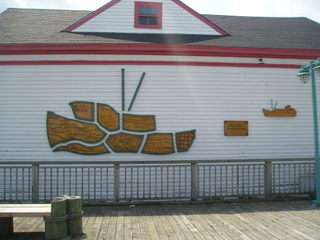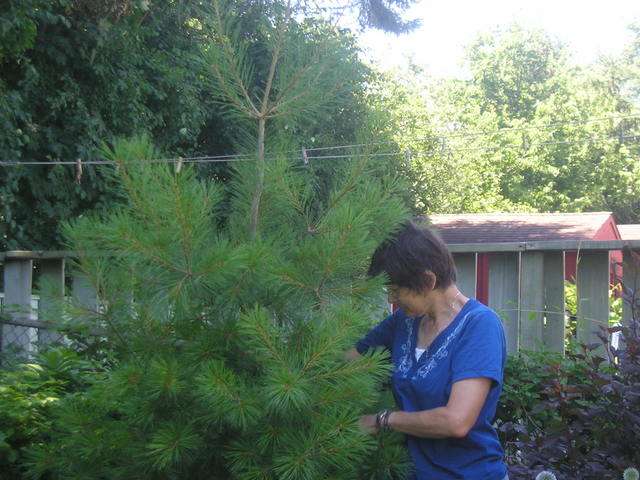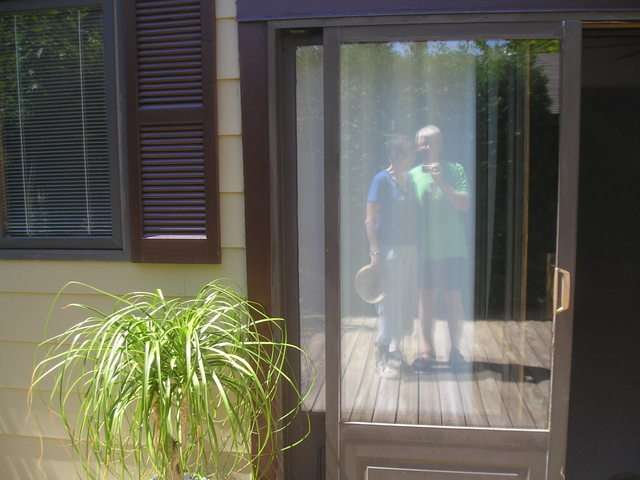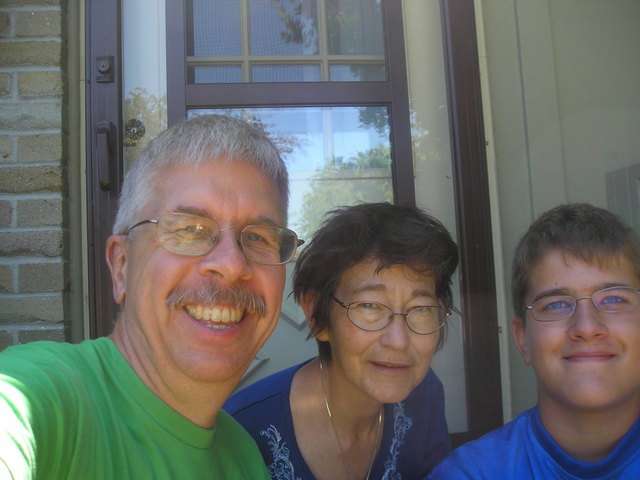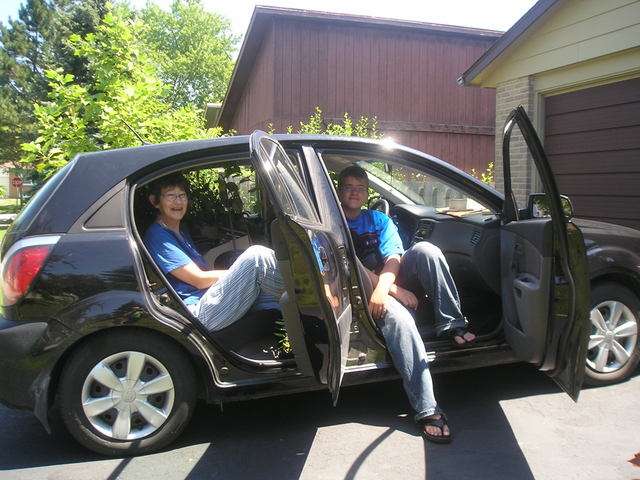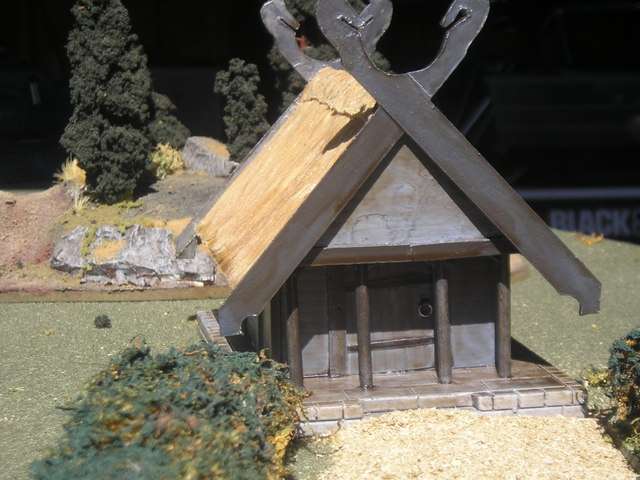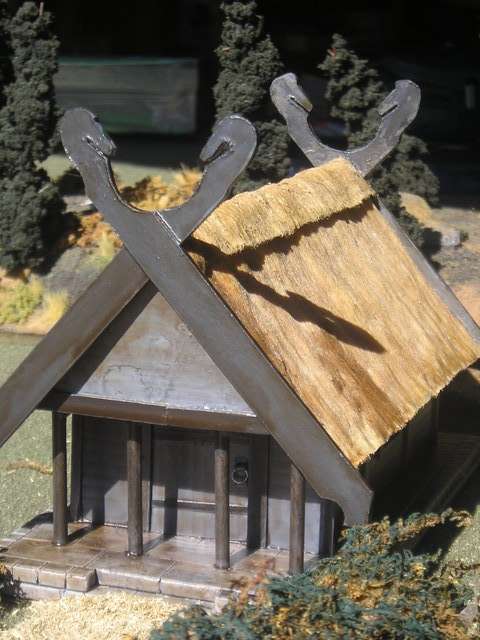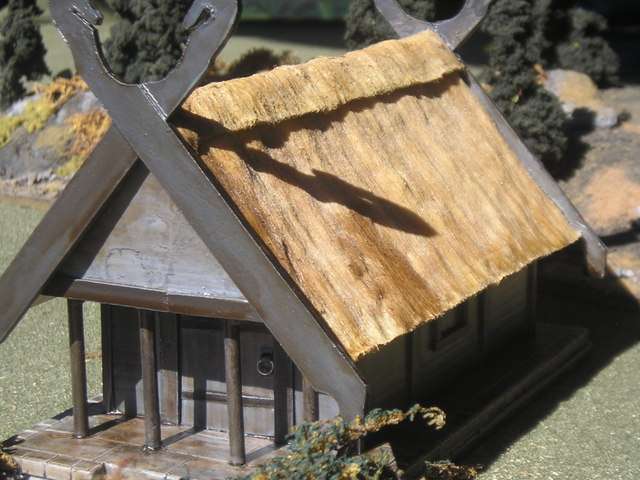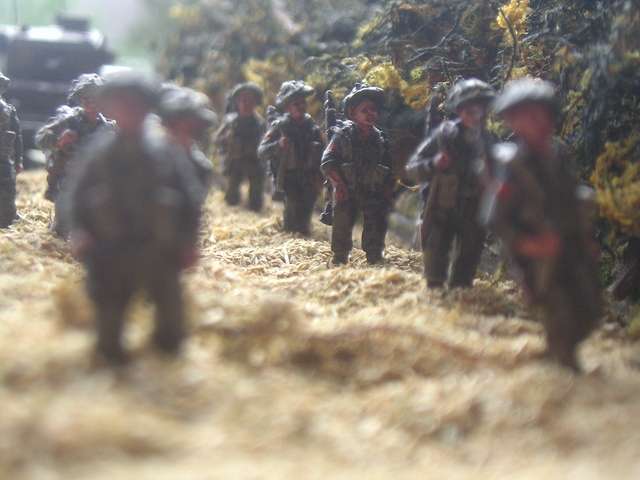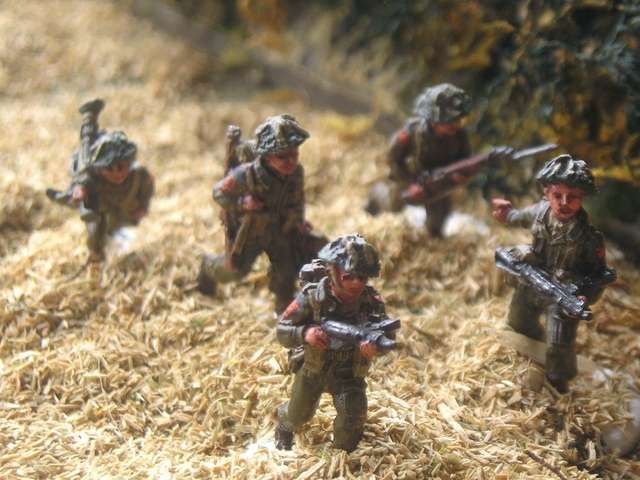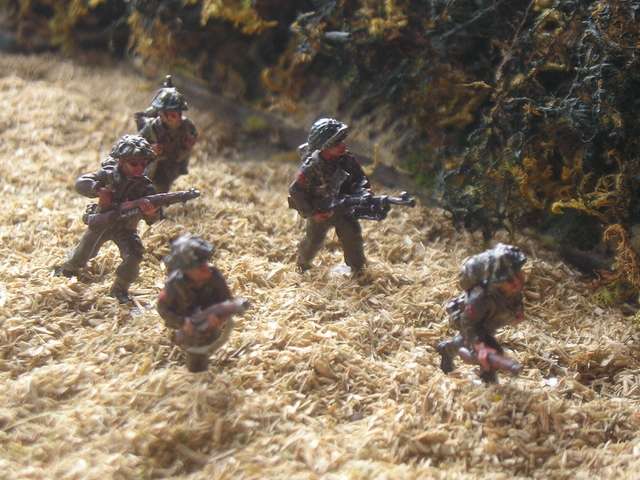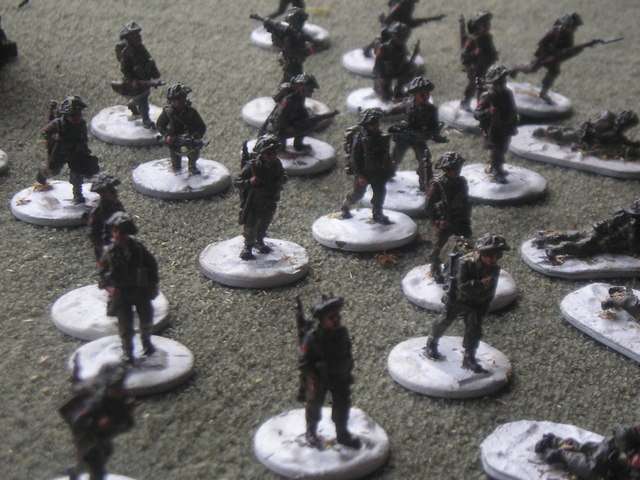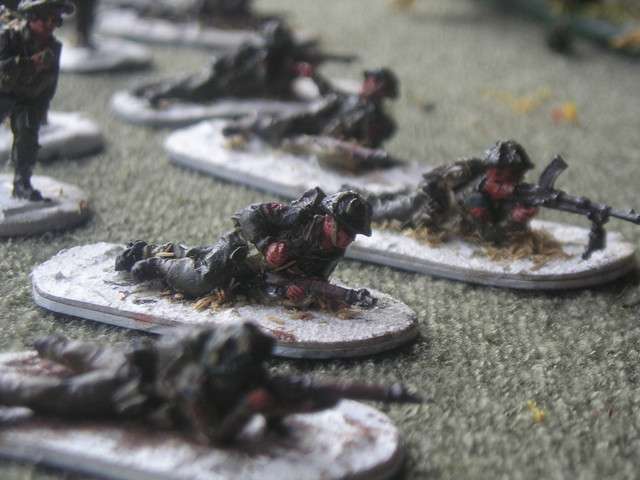A Sermon for the Seventeenth Sunday After Pentecost
St. Mark’s Chapel, CFB Greenwood, NS
7 September, 2008
Exodus 12:1-14, Psalm 149; Romans 13:8-14; Matthew 18:15-20
Today’s gospel offers the only specific instructions from our Lord to his disciples as to how to be church. Certainly much of Jesus’ teaching is about how to live our lives, but this is the only specific teaching about how to live our lives as church. As I said to the children, church is defined as the place where Jesus lives with his followers, and if Jesus is our crucified and risen Lord, then our lives as Christians must always be lives where we crucify our egos and selfish desires, and rise to new lives, loving, encouraging, and even correcting one another when necessary. This process isn’t always easy; I recall the first time a parishioner greeted me at the back door after church and said “I’ve got a bone to pick with you”. My heart sank! Nut the discipline of the community life described by Christ in Matthew 18 is necessary if we want to find true freedom as disciples.
Today I want to talk about freedom – the true freedom that God offers us – but I want to come at the subject by a different route, via our first reading, from Exodus. Today’s first reading sets the tone for our worship this morning as we prepare to receive Holy Communion. The first lesson describes a ritual meal that would remind the people of Israel about the freedom that God had given them, and of their obligations to use that freedom to live as God’s people. This ritual meal would not be a fancy, grand ceremony – rather, it would be what we might call God’s field rations - simple food, eaten quickly by people on the go.

I’ll return to Exodus in a moment, but speaking of field rations reminds me that in two days Padre Poley and myself will be saying goodbye to head off for a nice restful stay at the chaplains’ school in Borden. We will learn to adapt our clergy mindsets and habits to the military way of doing things, including eating. I remember last year, when I did the reserve chaplains’ course, a number of us complained to our course officer that our busy routine in the field left us too weary to sleep. Captain Caron, an ex-Vandoo and Airborne soldier who always had a smile, shook his head and laughed. “We give you an hour for lunch, and I watch you, you spend that whole hour talk talk talk. You padres talk too much. You should do like the infantry do – spend the first ten minutes eating, then sleep. Then you are nice and awake for the march.” That was difficult advice for clergy types who love food and conversation in equal measure, but we found it proved helpful.
Even though he never admitted to being a student of scripture, I think Captain Caron would have approved of God’s command to Moses and Aaron in our first reading this morning, to eat a short and hasty meal before a long journey. In our first reading from Exodus, God is preparing the leaders of Israel for their escape from slavery in Egypt. God instructs each Hebrew family to mark their doors with the blood of a lamb, so that the angel of the Lord will spare them when he comes to kill the firstborn of the Egyptians. Those of you who remember the scene from the old film The Ten Commandments will remember how grim and spooky these preparations were as the night and the fog of death blanketed Egypt. The Israelites are instructed to eat the lamb with unleavened bread and bitter herbs, and eat it quickly, dressed for the road and ready for the moment to begin their march to freedom.
As we listen to the instructions that God gives to Aaron and Moses, we realize that God is not just giving instructions for one meal that happened long ago in Egypt. First, God is speaking not just to Aaron and Moses but to the “whole congregation of Israel” – in fact, the phrase “whole congregation” is repeated twice (Ex 12:3,6). The word congregation reminds us that Israel is not just an ethnicity, like Egyptians or Greeks, but rather Israel is a special people chosen by God. Second, God is speaking about all of Israel throughout all of time: “throughout your generations you shall observe it as a perpetual ordinance” (Ex 12:14). And so we realize that in this lesson, we are hearing the story of the beginning of Passover. Passover is the festival, held in March or April, when Jewish families and congregations continue to gather to eat a special meal and to remind one another of how God brought them out of slavery in Egypt.
As Christians, we remember Passover for somewhat different reasons. We tell the story of the first Passover to honour our Jewish brothers and sisters, and to remember that share the same God who wants to give us his love and freedom. For us as Christians, the story of Passover in Exodus is forever linked to the gospel stories of Easter. For us as Christians, the lamb that God told the Israelites in Egypt to sacrifice becomes Christ the paschal lamb, a connection which St. Paul makes explicitly in 1 Corinthians (“For our paschal lamb, Christ, has been sacrificed” (1 Cor 5:7). Every Easter Christians remember that Christ, by dying on the cross, did what no sacrificial animal could do when he took our sins and guilt on us and made things right between us and God. Every Eucharist, or every Communion, or whatever we call the Lord’s supper, we share a meal which Christ commanded us to do “in remembrance of me” (Lk 22:19). Whether it’s bread and wine or crackers and grape juice, Christians remember through this meal that our Lord Jesus Christ freed us from sin and death. We also remember that we are one people, made one through our common baptism and called to a different way of life from the world, as we saw in today’s gospel.
So we find ourselves in St. Mark’s chapel this morning, discovering that what we have in common with the Israelites in their slave huts in Egypt is a common meal of freedom. Like our Israelite brothers in faith, we remember how God led us out of slavery into freedom, and that is such an important concept to our faith that we should always take the time to remember what freedom means to us as people of faith. For the Israelites, freedom from Egypt wasn’t just the chance to escape from the whips and brick factories of their oppressors. For God’s people, freedom from slavery meant freedom to find freedom in the presence of God and in the guidance of God. Israel was always free when it followed God’s law, heard the words of the prophets, and upheld the place of the poor and weak in its midst. Israel always put itself back into slavery when it ceased to do these things and turned to idols and false goods.
For us as Christians, we know that domination to false gods and idols can take many forms. We can lose our freedom to addictions of many sorts, to the desire for status and prestige and financial security. We can be dominated by our egos, by the entitlements and rights and advantages that we seek throughout life. We can be enslaved by our wrongs, nursing our spites and angers and walling ourselves us from others. We can be lose our freedom to doubt, to the sense that all beliefs and values are relative and therefore nothing really counts or matters.
So there are false freedoms, and then there are freedoms that are good and worth defending, but which fall short of God’s freedom. The struggles of our veterans to bring freedom to Europe, as symbolized by poppies and ceremonies like our upcoming Battle of Britain observances this month, are good and noble things to remember. They fall short of God’s freedom, however, because we know that freedom is always under threat in this world, as our mission in Afghanistan reminds us. The struggles of minorities to find equality are worthwhile things. What a remarkable political year we are having, when a women is a choice for Vice President in the United States and a black man is a choice for President. But however many echoes of Martin Luther King’s “Let freedom reign” speech there may have been in Denver when Barak Obama accepted the Democratic nomination, we know that this event falls short of God’s freedom. As long as there are minorities who are oppressed and voiceless, as long as there are dictators and oligarchies and corrupt governments, political freedom must be an imperfect, limited thing.
As we prepare to come to the Lord’s table, we need to remember that Jesus Christ came preaching God’s freedom to the world. In Luke’s gospel, at the very beginning of his ministry, Jesus says He has sent me to proclaim freedom for the prisoners and recovery of sight for the blind, to release the oppressed, to proclaim the year of the Lord’s favour” (Lk 4: 18-19). Likewise St. Paul says in Romans that the world, so imperfect to our eyes, is waiting for the day when it will be perfected, that it “will be set free from the bondage of its decay and will obtain the freedom of the glory of the children of God” (Romans 8:21). Our faith teaches us that perfect freedom comes only from God, and perfect freedom for us as Christians means the same as it did to the Israelites long ago – to be free from the influences that keep us from knowing God, worshipping God, and following God.
If you’ve ever been to a Seder meal with a Jewish family or congregation at Passover, you will know that the sharing of this same food – lamb, unleavened bread, bitter herbs – done as God commanded over countless generations, isn’t some meaningless ritual. Rather, it reminds Jews who they are, and despite all they have suffered over the centuries, it reminds them that their freedom in a world of oppression comes only from God. Likewise, for Christians, whether it’s every Sunday or every month, we gather to share the meal of Christ’s sacrifice to remind ourselves who we are and who we belong to.
One of the objections to church by some folks is that it’s the same thing over and over, without any change. It’s boring. As a young person, attending an Anglican church that used the old Anglican Book of Common Prayer, I remember that the Eucharistic Prayer took forever! But gradually I realized that this prayer and this service was the most important thing in the life of the church. As I grew older, I realized that this service reminded us of who Jesus is and how we belong to him. Eucharist or Communion protects us from the belief that we’re perfect – thus the prayer of confession said week after week. It reminds us to think, as today’s gospel reminds us, whether we are living peacefully with our neighbours in the congregation as part of the Body of Christ, and it challenges us to settle our differences before we come to the table. Eucharist or Communion. Coming to the same table, regardless of our rank or status or wealth, reminds us that we are equals in the sight of God, and reminds us of our responsibility to share with the least around us (hence the appropriateness of having a food bank box in a church).
As I got older, I realized that even the dull old Book of Common Prayer has much good to say. The second collect of the service for Morning Prayer, the Collect for Peace, reminds us that in God’s service we find “perfect freedom”. This morning, as we prepare to take the bread and wine of Christ’s selfless giving to us, may we find in this meal our “perfect freedom”, and may we use this freedom to draw closer to God in our walks with him and with one another.
©Michael Peterson+ 2008









